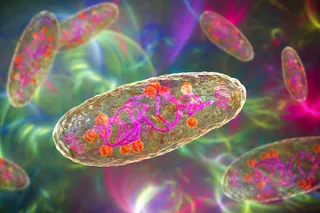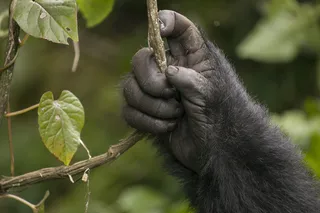A population group inside modern-day Ukraine avoided outside influence for about 4,000 years during the latter days of the Stone Age and delayed the transition from hunting and gathering to farming, a new study says.
Researchers from Uppsala University and elsewhere drew on genetic material of 56 people who lived at different times during the Stone Age, in central and eastern Europe. Experts were particularly interested in the introduction of farming to Europe, which occurred about 8,500 years ago. As Europeans mixed with early farmers from Anatolia (Asia Minor), their local genetic diversity spiked.
But the study found no such spike among people who lived along the lower Dnipro River, downstream from modern-day Kyiv. Most likely, their population stayed relatively the same, the paper says, and resisted joining up with European and Anatolian farming societies. Meanwhile, the diversity in Romania and Poland increased during the transition from the middle Stone ...














